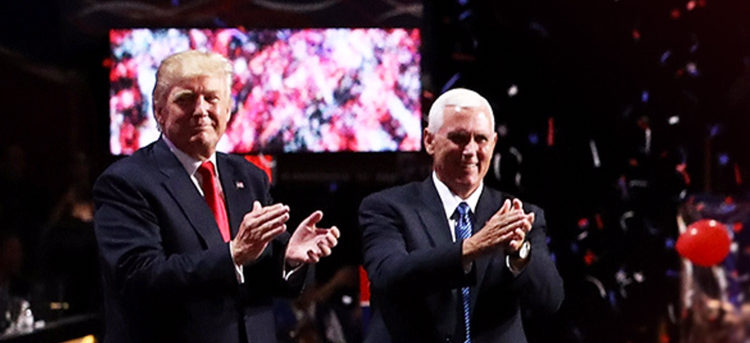In the lead up to the elections, data from the National Federation of Independent Business showed political uncertainty was causing inertia among business owners. Small business owners are concerned about high taxes, heavy regulations, and growing health insurance costs, according to the NFIB’s president and CEO Juanita Duggan—issues that were likely heavily on many voters minds as they headed to the polls.
With Donald Trump now the president-elect, SMBs might be wondering what’s in store for them. Trump released his proposed to-do list for his first 100 days, but it’s likely to take awhile longer to see what policy changes are enacted, and how they’ll affect small business.
However, here’s a quick look at a few of Trump’s most recent positions on policy to get an idea of what’s likely in play in the coming year.
Health Insurance
In 2015, the NFIB testified to the Senate Finance Committee that the Affordable Care Act had done little to alleviate the problems of high costs and red tape for business owners. Trump made repealing the ACA one of his top campaign promises, and according to his website, he supports replacing the ACA with Health Savings Accounts.
The newest reports now show that Trump might be shifting on that promise, saying he does favor parts of the ACA, specifically those that protect coverage for people with pre-existing conditions, and which allow for additional coverage for adult children on parents’ policies. Several experts note that repealing the ACA isn’t impossible; however, given the maze of the health care and insurance industries, replacing it might be nearly so.
Minimum Wage
Trump is against raising the federal minimum wage, but supports the idea of having a higher minimum wage—at the states’ discretion, according to Politifact. Wage increases were on the ballots in several states and, indeed, four states—Arizona, Colorado, Maine, and Washington—approved minimum wage increases to at least $12 by 2020, USA Today reports.
Higher wages have been a contentious topic for business owners. Some groups say they could hurt smaller businesses, while others say it makes them more competitive and is good for fueling the economy (and therefore, small business), the Associated Press reports.
Taxes
Trump proposes to cut the tax from 35% to 15% for small and large businesses, as well as eliminate the corporate alternative minimum tax, according to his website.
Among other provisions, he also pledged to raise the cap on the business tax credit for businesses that offer on-site childcare from $150,000 to $500,000.
If this sounds great, it comes with a caveat. In order to change the tax law, Congress needs to be on board—and it has had trouble agreeing on tax reform in the past. However, the NFIB’s Duggan tells the AP that she thinks tax reform has a much better shot with a Republican president and Congress.
Banking Reforms
Dismantling the banking reforms of Dodd-Frank Wall Street Reform and Consumer Protection Act is another item on Trump’s list.
“The Dodd-Frank economy does not work for working people. Bureaucratic red tape and Washington mandates are not the answer,” according to Trump’s website. He says he’ll replace it with policies that will encourage job growth. He also seeks to reorganize the Consumer Financial Protection Bureau (CFPB), which is tasked with bringing stronger consumer protections in consumer lending, according to Reuters.
What does this consumer-focused agency have to do with small business? This year, the CFPB started looking at bringing more transparency to small business lending. That means that any potential changes could affect whether the agency can proceed with potential consumer protections related to small business lending, says Caton Hanson, co-founder and chief legal officer of Nav.
However, because Senate rules allow a single member to prevent a bill from going to vote, Trump’s Dodd-Frank proposal might not ultimately fly, Reuters reports.
All of this comes with heavy caveats, of course. Mark Price, a labor economist at nonpartisan economic policy think tank Keystone Research Center, told Inc. that, for now, the future is uncertain. However, the next few months should reveal more about Trump’s policies.
“Beyond those larger themes, businesses will, like the rest of us, need a few months to get a better sense of the direction of the Trump presidency,” he told Inc.
So, readers: What do you think a Trump presidency has in store for your business? What changes would you like to see? Share your thoughts in the comments.
More answers to pressing questions
Business Credit Cards for Bad Credit
What Is a Good Business Credit Score?
Can a Sole Proprietor Build Business Credit?
This article was originally written on November 14, 2016 and updated on January 31, 2021.


Have at it! We'd love to hear from you and encourage a lively discussion among our users. Please help us keep our site clean and protect yourself. Refrain from posting overtly promotional content, and avoid disclosing personal information such as bank account or phone numbers.
Reviews Disclosure: The responses below are not provided or commissioned by the credit card, financing and service companies that appear on this site. Responses have not been reviewed, approved or otherwise endorsed by the credit card, financing and service companies and it is not their responsibility to ensure all posts and/or questions are answered.